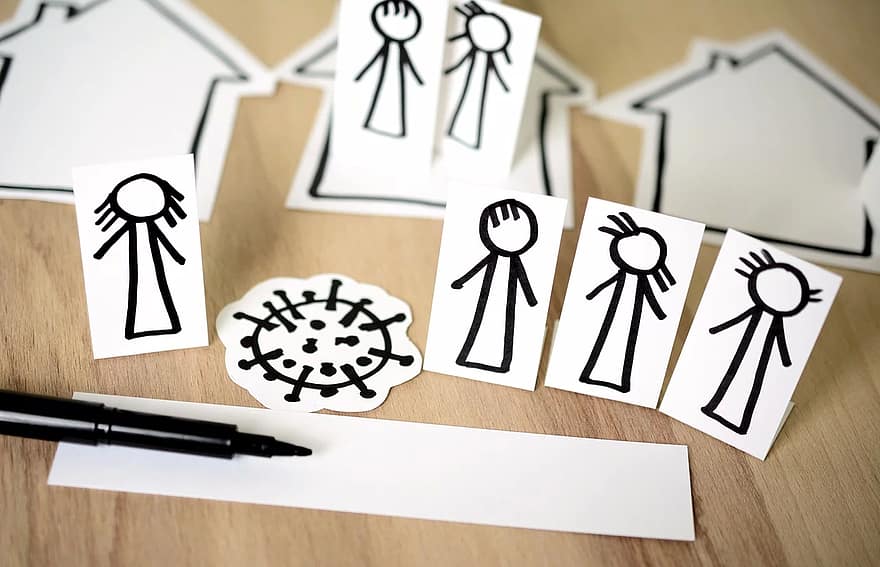
by Lural Ramirez | Jul 11, 2020
As schools across the world, and within Costa Rica, face the reality of a return to on-campus schooling in some form or another, emotions on the subject can run quite high and opinions, even among researchers and scientific experts, can vary widely.
From our perspective as a school, we continue to research the evolution of the disease as well as follow closely the recommendations from, not only the Costa Rican Health Ministry, but from other researchers and experts around the world.
Today, I would like to share some sample research and thoughts with you in the hope that it helps you have new and varied perspectives on the virus and the concept of school reopening when the virus is still present.
Health and safety

Regarding the concerns of wearing masks and the potential, related health risks of mask wearing, I recommend listening to this journalistic report from National Public Radio on the topic and their analysis of the scientific research behind prolonged risk from wearing masks.
Emotional and Psychological Impact of Quarantine

Does a pandemic cause emotional and psychological stress that is of grave concern in children? The answer is- it depends! Parental emotional regulation and the maintenance of a safe home environment are primary factors that contribute to the level of negative impact on children. The following article provides guidance and additional links related to supporting positive long-term health for your child throughout the distinct stages of the pandemic.
Considerations Regarding Short and Long-Term Response to a Virological Crisis
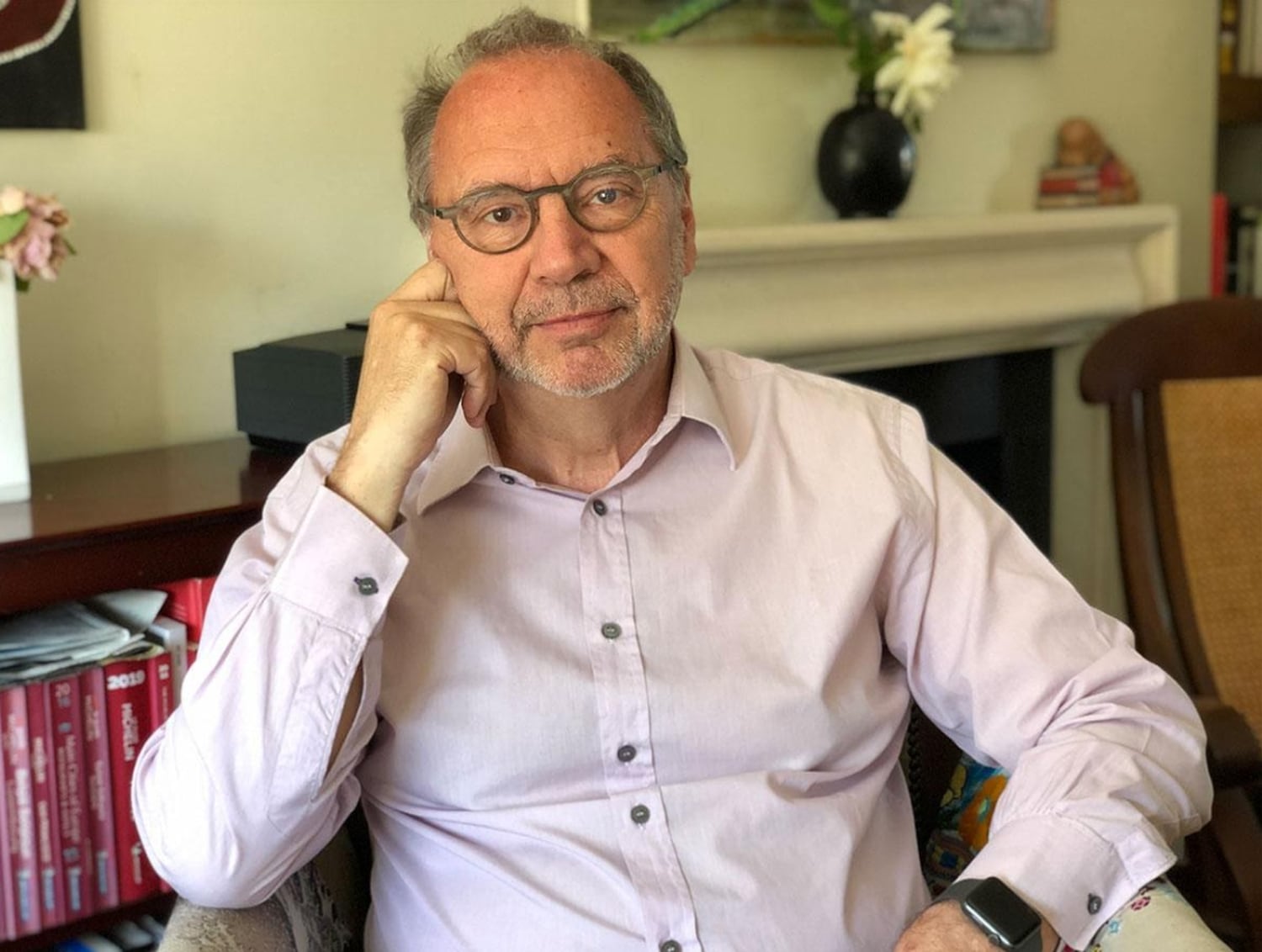
When there is a circumstance that so strongly impacts our lives and that is, in so many ways, out of our direct control, it is wise to consider the short and long term impacts of the crisis as well as the emotional response it is recommended by experts to take when facing such apparent uncertainty. In this article, renowned Belgian virologist, Peter Piot, reflects on the COVID-19 pandemic.
Our Commitment as a School
One of the most commonly heard reflections from this time of crisis schooling is a re-commitment by families, and by society as a whole, to the importance of the incredibly challenging and essential work that is done each day by our professional educators and by our schools. We are fortunate in Futuro Verde to have an incredible group of highly-qualified and professional educators who have taken on the challenge of distance and online learning with the same enthusiasm and problem-solving nature that you have come to expect from a FV teacher! The ingredient currently missing from our learning program is, thankfully, not a lack of progression in learning, as is the case in too many schools around the country and the world, but instead a joint presence on campus during learning processes. Being together, though physically separate, is important for children’s mental health, academic progress and intellectual and social-emotional development.
For this reason, as soon as the health conditions permit, we plan to open our campus to students. The Futuro Verde campus reopening will be gradual and measured and will include the following of all health measures required or recommended by the Costa Rican Health Ministry.
We commit to the ongoing education of our students:
Online and through a distance format when that is required, through a blended learning model when on campus learning is allowed, and in a full on campus mode when the pandemic conditions permit.
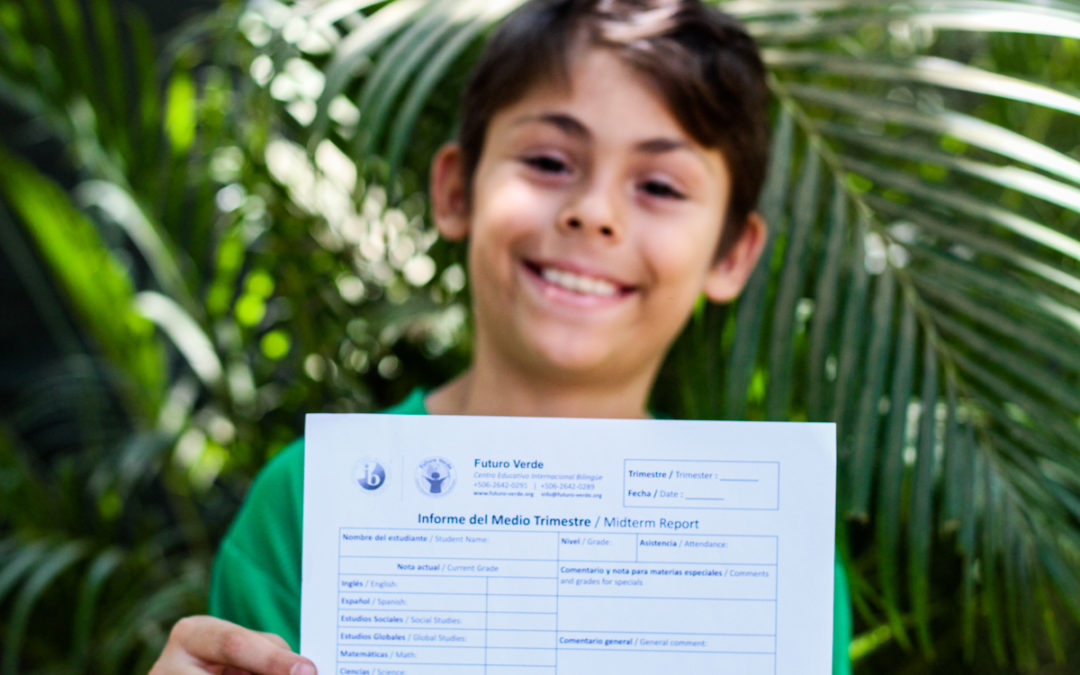
by Lural Ramirez | Mar 26, 2020
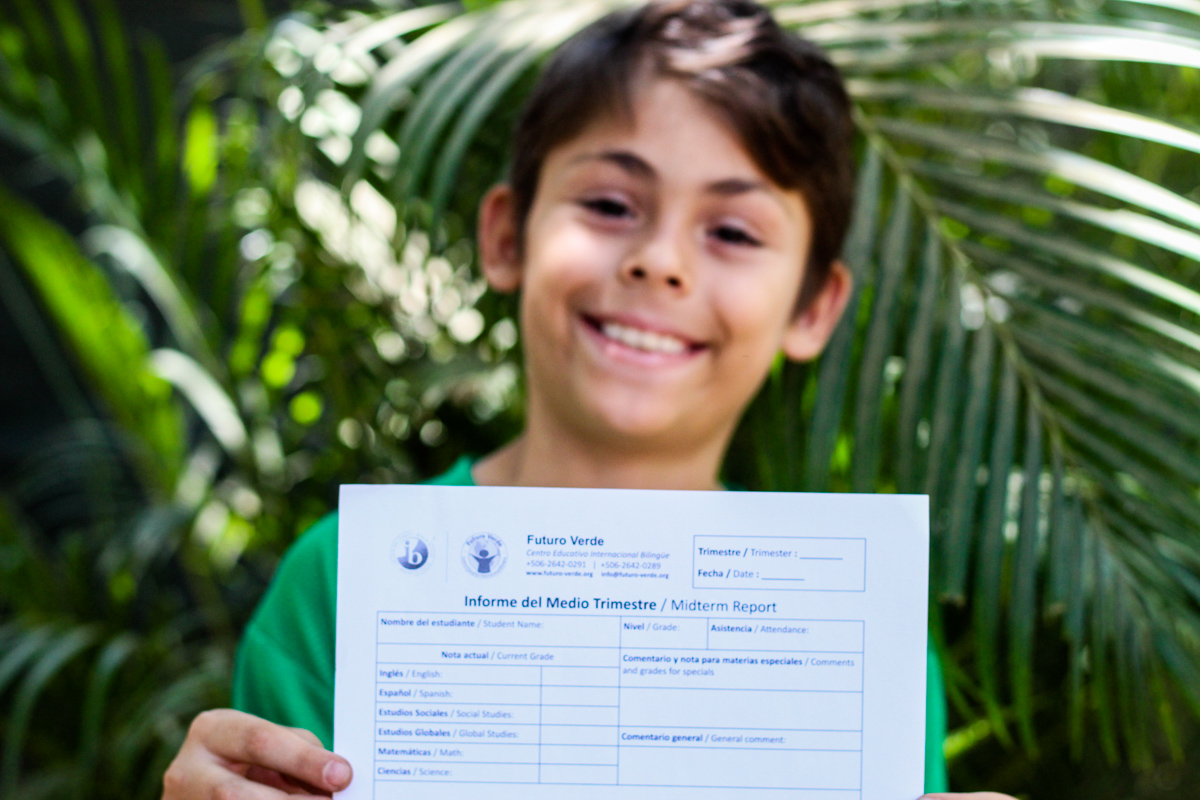
At Futuro Verde there are six formal grade reporting periods. These grading periods are divided into three trimesters with a formal report card at the end of each trimester and a midterm report sent home 6 to 7 weeks into each trimester. All grade reports are completed collaboratively by all teachers who work with each student and they are intended to inform parents of their child’s progress academically as well as to comment on progress in skills related to social-emotional development and self-management. This year, midterm reports were emailed to parents as the date for parent receipt of midterms coincided with our transition to an online learning program model as a part of our COVID-19 protocol.
As a parent, it is best to use midterm reports in the following ways:
- Understand how your child is evolving and progressing academically. What academic areas are strengths for your child? Is your child struggling in any way academically?
- Understand the specifics related to your child’s social-emotional development. Is your child relating well to others? Are they demonstrating pro-social behaviors with peers and adults?
- Is your child organized, independent in their study habits and able to self-manage? This will often show up as a comment in regards to turning in assignments or as a general comment from teachers.
What should you do with what the midterm tells you?
- If your child is struggling academically please schedule a meeting as soon as possible with the subject teacher, CREW teacher or the academic or assistant director. Now is the time to act and to intervene to help your child get back on track!
Even though we are in an online learning program right now, you can still schedule a Zoom or Skype meeting with school staff. To do so, simply email the teacher or administrator you would like to speak with.
- If your child is having any social or emotional struggles, please request a meeting with the school psychologist, Massiel, in order to make a plan for support and intervention. Social-emotional development and care is essential to development and learning and must be prioritized if your child has needs in this area.
Again, even though we are in an online learning program right now, you can still schedule a Zoom or Skype meeting with Massiel. To do so, simply email her to set up a time to talk.
- If you are seeing that your child is not progressing along recommended developmental processes related to independence and self-management, please make sure to identify this need and address it. Our goal as parents are to support our children in becoming independent and functional citizens who are positive contributors to society. This development happens little by little over the years and delays in development should be addressed immediately in order to help children be successful at all ages and stages.
As we are in the midst of online learning as we speak, it is ever more clear that it takes a village to raise a child and the triangular support system of school, parents and student must work in close unison for optimal development and growth over time! Thank you for supporting your child while they complete their social distancing and school work from home and thank you for consistently working in conjunction with our school to help your child reach his/her fullest potential!
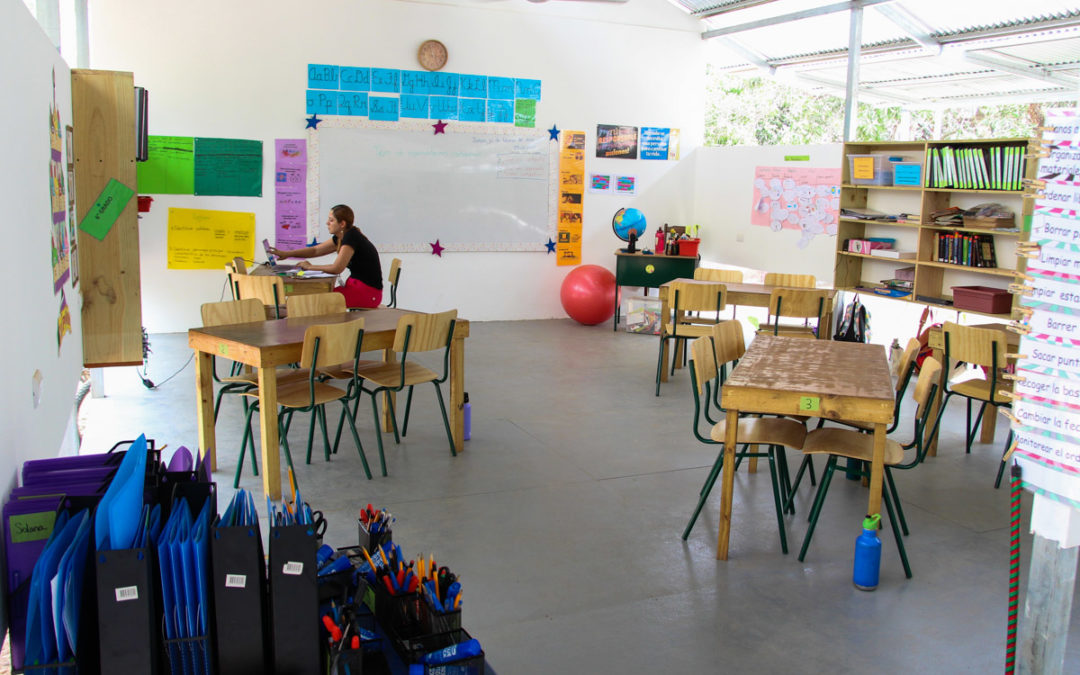
by Lural Ramirez | Feb 27, 2020
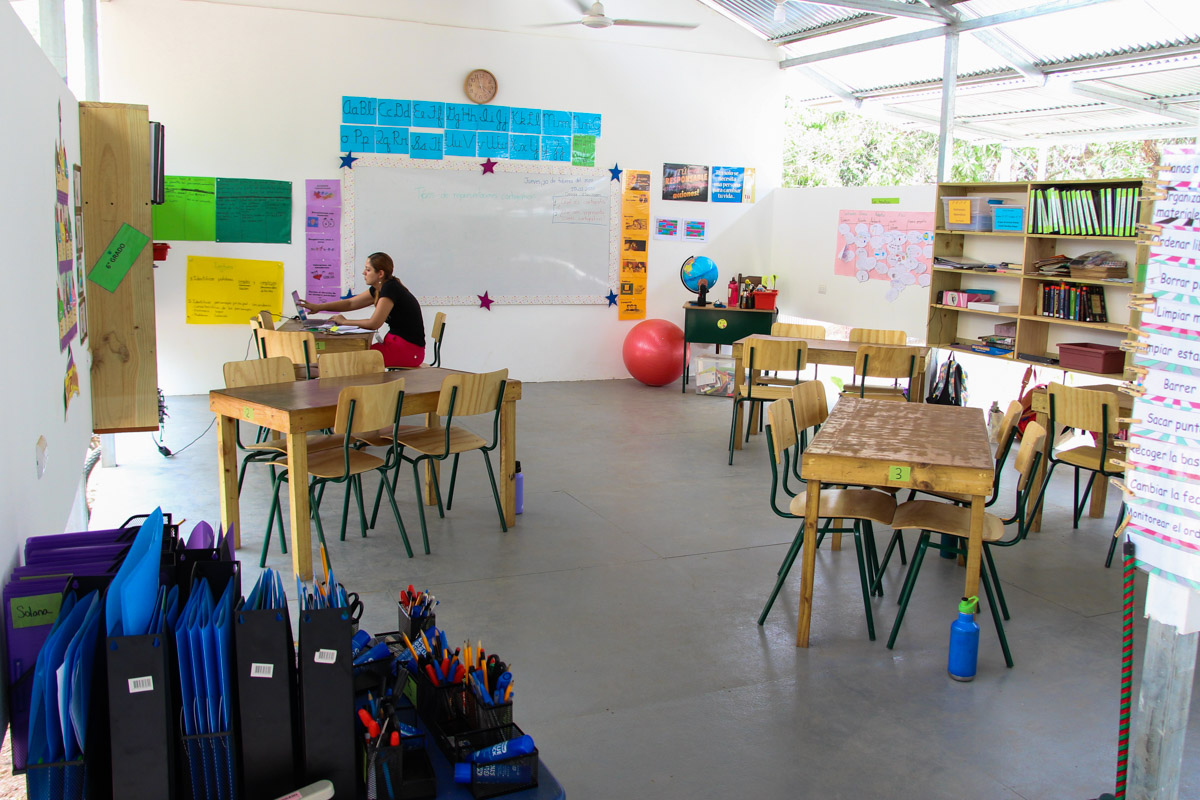
Every year at Futuro Verde brings with it new and exciting progress in our facilities and campus development. The 2020 school year investments have brought us three new elementary school classrooms and an addition on our current administration building along with a remodel of our current administration facilities. All of these new learning and work spaces are beautiful!
Some features of our new classroom construction include:
Our light construction approach- metal framing and half walls keep the construction light and the open spaces allow for optimal air flow, natural light, and connection to the surrounding jungle!
The decision to raise the base of our buildings above the ground is consistent with our permaculture commitments and allows for uninterrupted flow of rain water beneath the buildings during the rainy season.
Classrooms are much larger than the previous spaces and this large space allows teachers and students to have ample and flexible learning spaces, with table and floor space used for different pedagogical approaches and needs.
A set of new bathrooms are adjacent to the 4th grade classroom and their strategic location places new bathrooms right in the middle of the elementary wing of our school, conveniently located for all elementary aged students.
Features within the administrative building addition and remodel:
- A large, dedicated library space for secondary and another for primary and preschool.
- A new computer lab with space for 25 desktop computers.
- A dedicated testing and conference room, fully enclosed, air conditioned and ready to support in class assessment times as well as student national FARO and international IB exams. When not used for assessment, the conference room will be used for board meetings, community organization and cooperation efforts and teacher meetings.
- A dedicated counseling space for our school psychologist to be able to attend to the social and emotional needs of our students.
- Additional bathrooms for students to access on the south end of the campus and during recess times especially.
- Multiple offices for our amazing specials teachers, leadership team, coordinators and finance department.
As you can see, our campus continues to expand and grow to meet the needs of our diverse community. We are thrilled to have our new buildings, to have access to comfortable and inviting learning and work spaces meant to inspire a love for learning, and we are forever grateful to our families for their commitment to our school and to our donors for their willingness to give toward our expansion efforts and facilities development! Thank you!
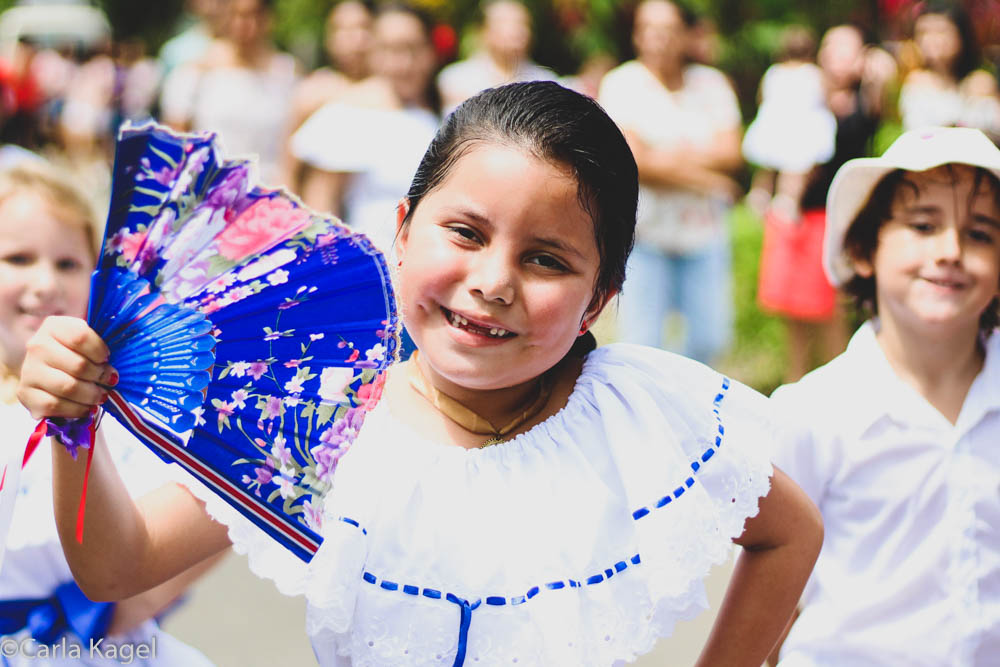
by Karol Madrigal | Aug 29, 2019

During the month of September, at the same time as our fellow Central American nations, we celebrate our country´s Declaration of Independence. As a result, a series of activities are organized, such as decorating the classrooms with patriotic symbols, creating lanterns, and rehearsing for the colorful parade of marching bands, flag bearers and twirlers, among others.
This holiday, in particular, is highly valued at a national level as it represents a special opportunity to reflect on how proud we feel of our political stability and pacifism, which is evident in the fact that our parades, throughout the country, are organized and spearheaded by our “army” of teachers and students.
This year, all our students are already preparing for their participation in the parade on Sunday, September 15th. To this purpose, we have formed a variety of groups preparing different types of presentations and dedicating time and effort to our weekly rehearsals.
In addition, at the beginning of September, our classrooms and corridors will be decorated with patriotic symbols and lanterns will be made for the nightly lantern parades held in each community on Saturday, September 14th. In conclusion, our students will have the opportunity to enjoy all the ongoing activities while developing their civic awareness.
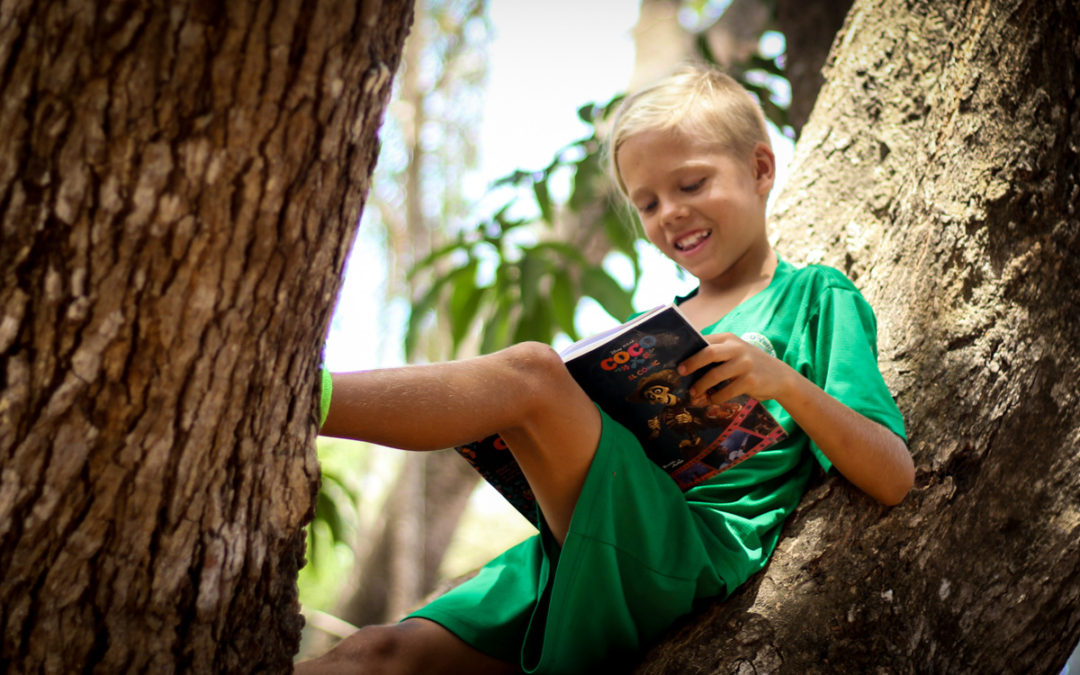
by Noelia | May 5, 2019
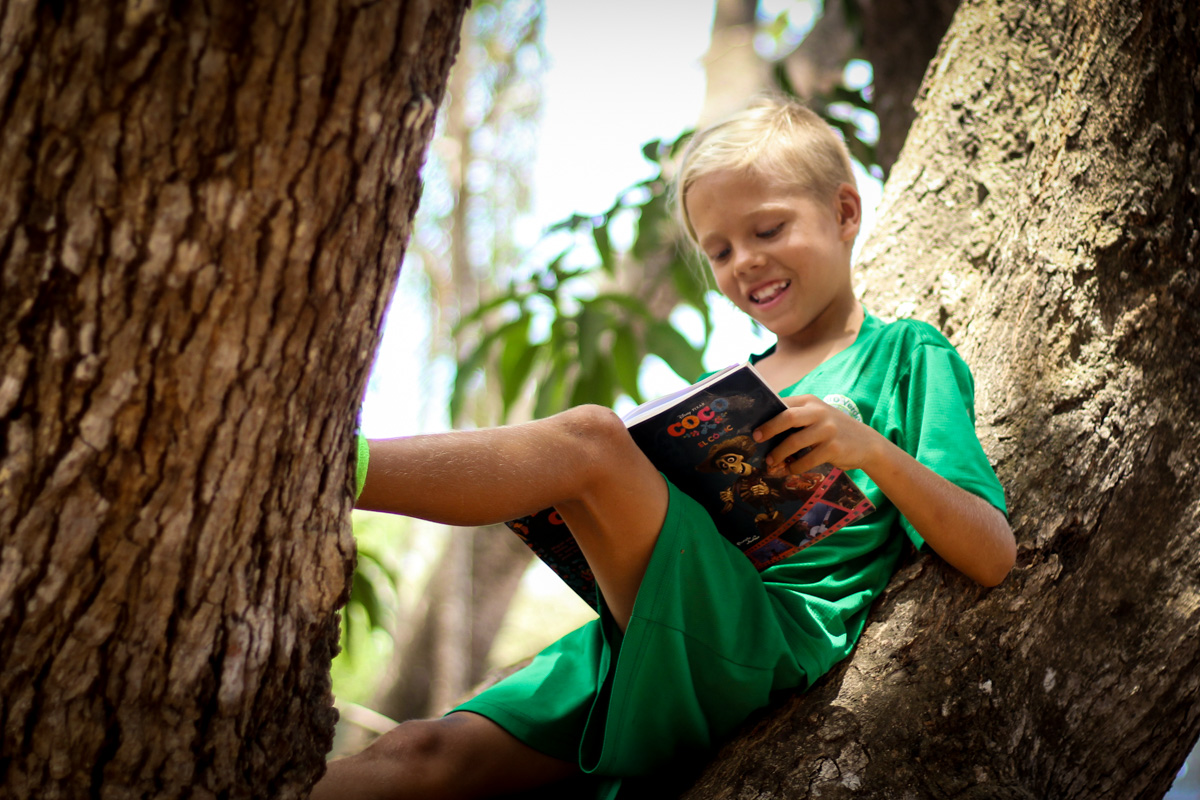
“Success is the sum of small efforts, repeated day in and day out” is a phrase by Robert Collier that sums up the work we do at Futuro Verde in general and, more specifically, in the library perfectly.
From the moment the library was founded, firm goals and convictions were established that are reinforced day by day, regardless of the circumstances. We started out with a simple space with a closed bookcase and a collection of no more than 750 books. Today, we have more than 7,000 copies in accessible shelves, as well as two reading, study and teaching areas. Hence, we believe that every minute dedicated to the library has been worthwhile and has paid off.
With the aim of changing the perception that documentation centers have become tedious and lifeless places, the school administration, collaborators and library employees have taken on the task of converting this area into a comfortable and attractive hub, mainly for the students. Attempting, without a doubt, to draw them closer to the most important source of culture, information and knowledge: books. Through school investments, donations and various fundraising activities, we have managed to improve in 4 essential areas:
Increase the bibliographic volume of books in Spanish, English and French.
Bring library spaces to life.
Provide the necessary means for successful investigations.
Instill a love of reading from the smallest levels onwards.
This last point is, undoubtedly, one of the most important and the school decided to support it by hosting our first Annual Book Fair, held the same day as International Book Day on 22, 23 and 24 April.
Since we sold 70% of the books that we had purchased, recovered the money we had invested, and earned a profit in both money and books (since all the books that were not sold will be incorporated into the library), we are extremely proud to announce it was a huge success! Moreover, we feel great satisfaction knowing that many parents and students invested their money in books, which they are enjoying today.
For all of us involved in the preparation of our fair, it was gratifying to see the excitement and emotion on the face of each child, youngster, teacher and parent who came to the stand to admire or buy a book.
I would like to extend our sincerest thanks to the people involved and collaborators: Doris Madrigal, Mariel Urban, Jusneyling Marenco, Angie Briceño, Katie Chiaverini, Lural Ramírez, Evelyn Vargas, Joaquín Salas, Hannia Granados, Hellen Molina, Walter Mairena, Alannah Anglin and Khalida Lockheed, without your support and collaboration this wonderful week would not have been possible!
We also wish to thank the sponsors of our bingo:
- Chelo’s Pizza
- Farmacia Montecristo
- Transporzuma
- Repostería Doris Madrigal
- La Selva
- Maureen’s bracelets
- Piscina Torogoz
- Macondo Montezuma
- Santa Teresa Travels

by Lural Ramirez | Jan 22, 2019
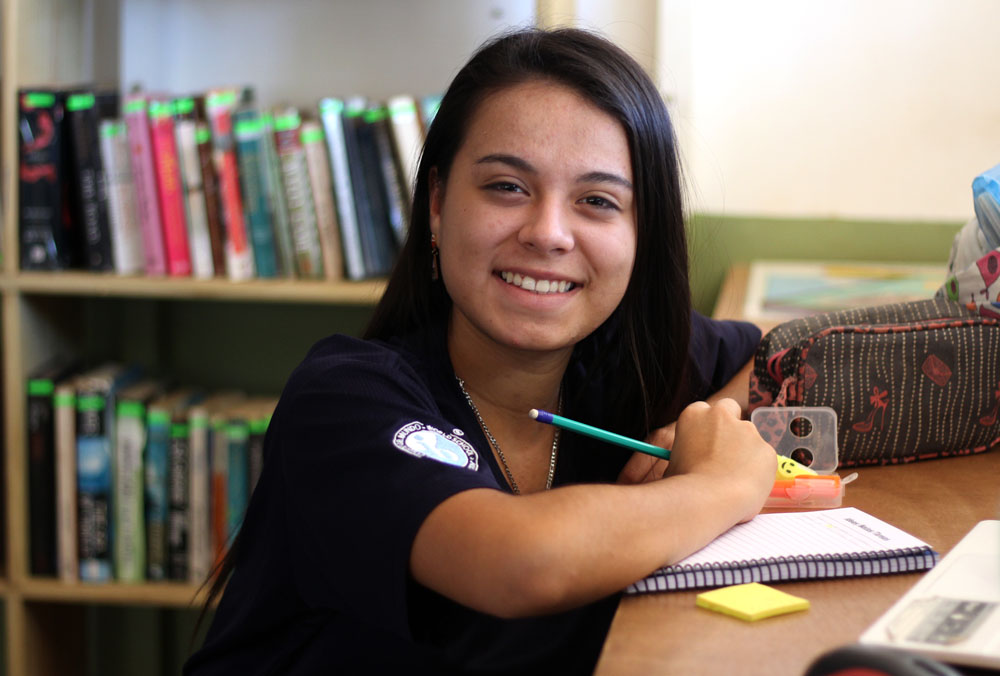
Aren’t all schools the same? Or, if they are different, they can’t be THAT different, right? I have heard comments like these so many times in my 16 years as a teacher and an administrator.
Futuro Verde is accredited by the Ministry of Public Education (MEP) here in Costa Rica and we are authorized to offer the Diploma Program (DP) as an IB World School. We then choose to align all our grade levels- preschool, elementary and middle school to the IB way of teaching and learning in our DP program. The philosophical groundings of MEP and IB could not be more different from one another- quite literally they are nearly polar opposites. Both ways of learning can get you a high school diploma, but did you know that the IB philosophy does something for students that a traditional MEP education simply does not provide? But what is this difference, you ask?
IB: Guided by a Holistic and Inquiry-Based Education
An IB education is grounded in inquiry and constructivism and is built strongly on a curricular structure that requires students to be critical thinkers and active participants in their learning. Unlike in traditional contexts, IB teachers are guides on the side, not sages on the stage. IB teachers are also entrusted with their own curriculum development. This makes each IB course unique in every school as teachers develop and create their curriculum to match their students’ needs and interests and their specific school context. This pedagogical freedom requires teachers to be smart, creative and excellent models of the critical thinking they then seek in their students.
The other impressive hallmark of an IB education is its commitment to the holistic development of students. So many educational systems, including MEP, place ultimate importance on only a few basic, academic subjects and they do so at the expense of holistic development. IB is dramatically different in this sense! In the DP, the three requirements that make up the core studies for a student are not even any of the basic, academic subjects. Without fulfilling the core successfully, students do not achieve an IB diploma! Core IB classes are: Theory of Knowledge (TOK)- a two-year course designed to critically analyze how we know what we know; Creativity, Activity and Service (CAS)- a course that requires students to be balanced- to be physically active, to try new things, to serve others and to explore their creativity; and finally, Extended Essay (EE)- which is essentially a 4,000 word mini-thesis, written on a topic of the student’s choice. This commitment to core abilities like social connection, critical thinking and research and written expression make IB’s core elements a fantastically holistic graduation requirement!
The final element of IB that is firmly committed to holistic development comes from the final requirements for graduation- passing grades in all of the basic, academic subjects AND in the arts! Gone are the days that students can be so narrowly focused. IB develops in students a liberal arts inspired approach to teaching and learning, leaving students, parents and teachers alike to fully embrace the notion that ALL student learning is equally important, not just success in basic, academic subjects!
As you can see, an IB education is drastically different from a traditional model of learning and, in our modern society focused on 21st Century Skills, the IB provides students with the advantage they need in high school in order to set them up for the most successful university experience possible!













